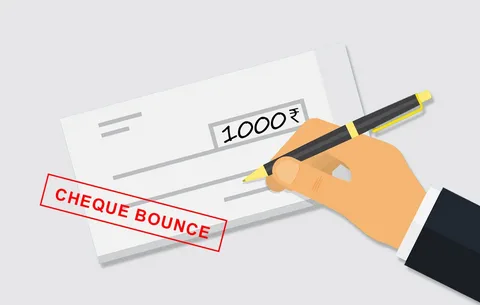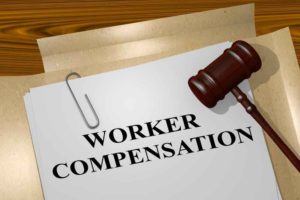A cheque bounce is an all-round money matter that may have some dire legal implications. In case you have been accused of cheque dishonor or cheque bounce, knowing the law related to this case and ways of defending yourself ought to be well understood. In this article, we are going to discuss several legal tactics, which will help you protect yourself in a case of Cheque Bounce or protect yourself from being charged the penalty of a dishonoured Cheque.
1. Basics of Cheque Bounce and Its Consequences
When a bank rejects a cheque issued by the person who had issued the cheque (drawer) due to lack of funds or for any other reason, cheque bounce occurs according to the section 138 of Negotiable Instruments Act, 1881. In case a cheque bounces, the payee (the person to whom the cheque was drawn) has a right to file a criminal case of the dishonor of the cheque.
The cheque bounce effects can be intense. However, there is some protection by the law that the drawer can put to avoid bearing the penalty. It is important to know these defences and law of cheque bounce when preparing your case.
2. Legal Defenses against a Cheque Bounce Case
To move a defense in cheque bouncing case, you must prove to the fact that the charges complained by the payee (the person on whom the cheque was dishonored) are false. The below are some legal strategies that you can use:
a. Insufficient Funds:
The most frequent defense for cheque bounce charges is the insufficient funds claim. If you have the ability to demonstrate that the cheque bounced due to a technical or operational reason, like the lack of funds in the account when it was presented, you are likely to escape from the penalty. In a few instances, the cheque bounce legal notice is sent hastily, and the dishonor need not always be your fault.
b. Technical Defects in the Cheque:
Technical defects in the cheque itself may be another defense. If the cheque is improperly filled with errors, either an unpresented signature or incorrect figure and word discrepancies or an incorrect date, it can be rendered invalid for processing. Bouncing a cheque on account of such technicalities can be utilized as evidence that the cheque was not duly presented.
c. Forgery or Fraudulent Activity:
If you are convinced that the cheque drawn was a forgery or that there was fraud in drawing the cheque, you may raise this as a defense. For example, if your signature on the cheque was forged or if the cheque was drawn against your will, this might cause the case to be dismissed.
d. Valid and Proper Notice of Dishonor:
According to Section 138 of Act on Negotiable Instruments Act, the payee has to issue cheque bounce notice in a period of 30 days when he or she receives information from the bank about dishonoring the cheque. If the notice was not given or if it was given late, you can dispute the validity of the complaint.
Where there has been a cheque bounce, by law, the payee is supposed to give a formal legal notice to the drawer, calling for payment of the amount of the dishonoured cheque. Non-compliance thereto could jeopardize the cheque bounce case.
e. Payment Already Made
In case you have already paid the payee and they did not cash the cheque, or in case you made payment through some other means, you may take shelter behind this defense. You must have proper documentation, such as receipts or bank statements, to prove that the payment was indeed made.
3. Burden of Proof and relevance of documentation.
In case of cheque bounce, the burden of proof lies with the complainant and that the complainant must prove that the complaint is delivered as a valid liability or debt. In case the complainant is unable to prove the fact, then the case can be cancelled. Therefore, you have to compile and file all the relevant documents which represent the fact the cheque was granted for no proper debt.
Some of the supporting documents may be:
- Cheque presentation date balance-sufficient sufficient bank statements.
- Cheques copies bringing out differences, if present.
- Communication to the payee over the debt.
- Evidence of payment in other means such as receipt, bank transfer or demand drafts
These papers can be used to show that there was no intention to defile the cheque and the accusations are unfounded.
4. The Role of Legal Notice and the Cheque Bounce Cases.
A cheque bounce legal notice is an official notice that is sent out to the cheque drawer by the payee if the cheque bounces. It requires the payment of money in a certain period of time (in most cases, 15 days). You should ensure that the notice that has been served to you is legal. If the notice was written illegally or it was not issued within the stipulated time then you can dispute its validity. Besides, if the notice is vague or does not provide the adequate facts, it may serve as the supporting fact on your side.
5. Appealing Against a Cheque Bounce Conviction
To succeed in your appeal, you must present strong evidence and legal reasons showing that the judgment was faulty. Some appeal grounds are:
- Failure to establish that the cheque was drawn in consideration of a valid debt
- Procedural errors, such as defective notice or failure to comply with the 30-day time limit
- Misinterpretation of facts or laws by the trial court
Sometimes, the court can reverse the verdict or lessen the punishment, depending on how strong your defense is.
6. Consequences of Cheque Bounce and How to settle
When one is accused in a cheque bounce case then it is important to know the threat of punishment. Condemnation carries with it punishment when meted out by fine, imprisonment or both as stipulated in Section 138 of the Negotiable Instruments Act. However, it may be possible that sides of dispute can compromise or settle out of court.
Quite often, the parties in a cheque bounce case may reach an out-of-court settlement by engaging in talks of payment of the amount due or a plan of installments.
7. Conclusion
Self-defense in a cheque bounce case requires one to be well versed with cheque bounce law and legal processes and the possible defenses. It is imperative that swift measures should be implemented, all papers should be procured and professional legal advice should be sought to ensure that one gets the desirable outcome. When you have just been slapped with dishonored cheque, cheque bounce legal notice, or bounced cheque penalties, the services of a specialist lawyer can contribute greatly to bolstering the defenses.
If you find yourself in a situation of cheque bounce then it is better to get professional help from Lawchef. Their panel of legal professionals could help you on how to handle the intricacy of cheque bounce cases in such a way that your rights are protected and the possible repercussions are avoided. Experience of Lawchef can turn your defense strong and you get the best legal help in the proceedings.





Be First to Comment